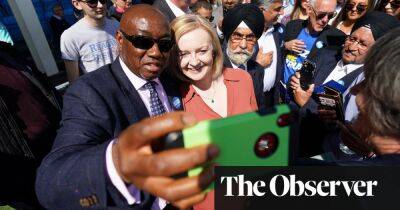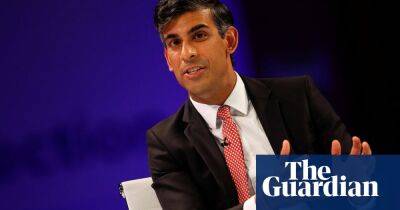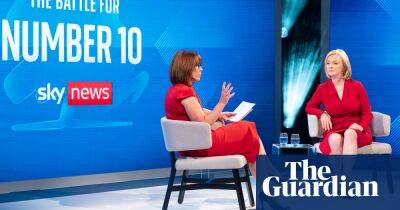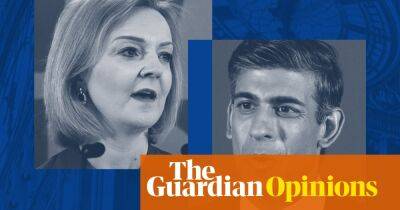Shapeshifting Sunak’s tax-cutting conversion risks overpromising
Harold Wilson’s quip that a week is a long time in politics has rarely been more true than in the case of Rishi Sunak.
Seven days ago the former chancellor was marketing himself as the candidate of financial rectitude as he pitched to be Britain’s next prime minister. Tax cuts, Sunak said, would have to wait until they could be afforded and inflation had been tamed.
But it appears trying to come across as the modern reincarnation of William Gladstone has not gone down well with the Conservative party members who will choose who succeeds Boris Johnson. The bookies have Liz Truss – who wants immediate tax cuts – as the odds-on favourite to be the next occupant of 10 Downing Street.
In an attempt to win over Tory members, Sunak last week ditched his opposition to cutting VAT on energy bills and said he would support a one-year reduction to help consumers cope with the cost of living crisis that will worsen this winter. Now he has gone further by announcing plans to cut the basic rate of income tax to 16% by the end of the next parliament.
Sunak insists this is not a screeching U-turn prompted by the threat of imminent defeat – but that’s certainly what it looks like. It says something about the former chancellor’s political nous (or lack of it) that last week he was deriding tax cuts as a “sugar rush”, while this week he is pledging the biggest reduction in income tax since the late 1980s.
Naturally, Team Sunak say there is a difference between Truss’s tax cuts (irresponsible and inflationary) and their own, which are prudent and affordable because they will be delivered in the fullness of time, when the economy is growing strongly and tax revenues are booming.
There are three problems with this. First, there is no guarantee the
Read more on theguardian.com

![Polygon’s [MATIC] next breakout heavily relies on this factor - ambcrypto.com](https://finance-news.co/storage/thumbs_400/img/2022/8/25/38382_etq.jpg)



















